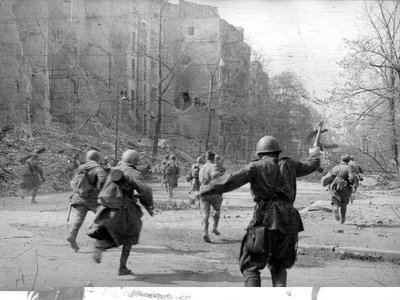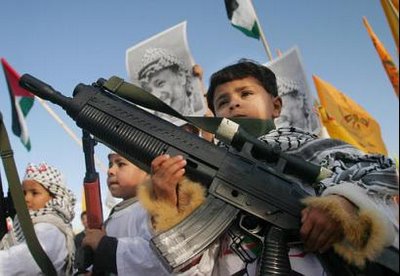The British and French spent the winter of 1939-40' setting up a naval blockade and digging in behind Maginot Line. By June 22, Germany conquered France and set up the Vichy (puppet) government under the leadership of WWI French Gen. Marshal Pétain. The renown (and much romanticized) French Resistance consisted of approximately 40,000 individuals, or a paltry 0.001% of the French population.
By June of 1940, Britain was the sole defender of democracy in Europe. The Battle of Britain, a three month air campaign against English cities and coastal defenses, was meant to prime an invasion or force a peace deal, leaving the whole of Europe under Nazi control. The British refused to forsake an entire continent, withstanding Nazi aggression by themselves until June 1941 when a confident Hitler attacked the Soviet Union.
By March 1941, the US began supporting the Allies with the Lend-Lease Act, saving an almost bankrupt Britain from collapse. With American financial and material support plus a second front, the tide was beginning to turn against Germany. By September of 1942, Hitler's forces drove all the way to Stalingrad only to be repelled and then fall victim to the Russian winter. German casualties were estimated at 300,000.
By May 1943, the Nazis had lost North Africa and failed in their attempt to invade the USSR. In the beginning of 1944, the air war had turned strategic advantage irreversibly in favor of the Allies. 'Carpet bombing' leveled entire cities, including Berlin, and troops fought for cities containing mostly rubble. "We go to gain a little patch of ground that hath in it no profit but the name."

 Add color to the second picture and it seems like a current scene from Lebanon. It is the price of war; a tragedy that seems to endlessly repeat. One of many historical parallels peaking through the current world conflict is the indoctrination of youth and the exploitation of the desperate to influence and inspire an authoritarian movement led by men who will do anything to attain power (this time it's under the guise of religion).
Add color to the second picture and it seems like a current scene from Lebanon. It is the price of war; a tragedy that seems to endlessly repeat. One of many historical parallels peaking through the current world conflict is the indoctrination of youth and the exploitation of the desperate to influence and inspire an authoritarian movement led by men who will do anything to attain power (this time it's under the guise of religion).






No comments:
Post a Comment